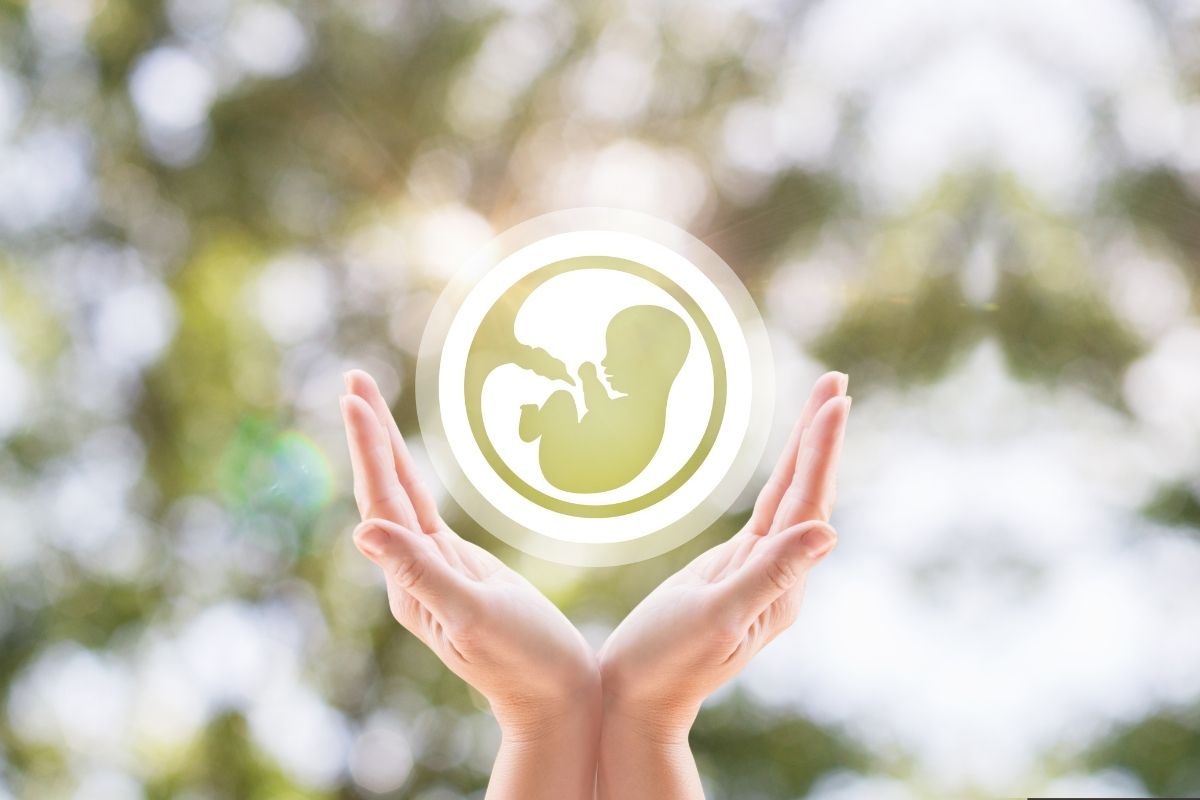In fertility treatments like IVF, some couples have extra healthy embryos after their own treatment is successful. Instead of discarding them, they can donate these embryos to other couples who cannot conceive with their own eggs or sperm. This process is called embryo donation.
At Arihant Hospital & IVF Center, we offer ethical and safe embryo donation services to give hope to couples struggling with infertility. It is one of the most generous forms of donation, as it allows another family the chance to experience the joy of parenthood.

What is Embryo Donation?
Embryo donation is a form of assisted reproductive technology (ART). In this process, Healthy embryos, meticulously developed by a couple through the process of in vitro fertilization (IVF), are generously donated for the purpose of helping others. These carefully created embryos are transferred into the uterus of a recipient woman, where they have the opportunity to implant and grow. If the implantation is successful, it heralds the beginning of a pregnancy, an experience that unfolds much like that of a natural conception, filled with hope and anticipation. It is similar to adoption, but the process starts at the earliest stage of life, with the embryo.
Who Needs Embryo Donation?
- Couples where both egg and sperm quality is very poor.
- Women with repeated failed IVF attempts.
- Couples with a high risk of passing on serious genetic diseases.
- Older women with very low ovarian reserve.
- Single women who cannot use their own eggs and need both donor sperm and donor egg.
At Arihant Hospital & IVF Center, embryo donation is offered after careful evaluation of the couple’s medical and emotional readiness.
The Process of Embryo Donation at Arihant Hospital & IVF Center
Step 1: Counseling and Consent
Both the donor and recipient couples participate in comprehensive counseling sessions. These discussions are designed to address any concerns, provide support, and ensure that both parties are emotionally prepared for the process. Prior to proceeding, informed consent is obtained meticulously, ensuring that all individuals fully understand the procedures, potential risks, and implications involved in the journey ahead.
Step 2: Donor Screening
Donor embryos are sourced from couples who have undergone in vitro fertilization (IVF) and have successfully conceived. These embryos, which are created during the IVF process but not used by the couple, offer hope for others facing fertility challenges. The screening process for these donors is rigorous to ensure the highest standards of health and genetic integrity. It includes a comprehensive review of the donor's medical history, alongside thorough blood tests to check for infectious diseases and genetic conditions. Additionally, advanced genetic testing is performed to identify any potential hereditary issues, ensuring that the embryos provided are as safe and healthy as possible for the recipient.
Step 3: Matching Process
Recipient and donor information are aligned according to established medical protocols and ethical standards. This thorough matching process ensures that both the health needs of the recipient and the suitability of the donor are carefully considered, promoting the best possible outcomes for both parties involved.
Step 4: Preparing the Recipient Woman
The woman's uterus undergoes preparation through the influence of hormones, specifically estrogen and progesterone. These hormones play a crucial role in thickening and enriching the uterine lining, creating a nurturing environment that is ideally suited for the implantation of an embryo. This intricate hormonal balance ensures that the lining is lush and ready to support a potential new life.
Step 5: Embryo Transfer
Frozen embryos are meticulously thawed in a controlled environment to ensure their viability. Once thawed, the healthiest embryos are selected and gently transferred into the woman’s uterus. This procedure, which resembles the in vitro fertilization (IVF) transfer process, is straightforward and involves no discomfort, providing a seamless experience for the patient.
Step 6: Pregnancy Test
Approximately 12 to 14 days after conception, a pregnancy test is conducted to determine if implantation has been successful. If the test yields a positive result, the woman can proceed with her pregnancy, embracing the journey ahead just as she would during a typical pregnancy.
Benefits of Embryo Donation
- Gives hope to couples with severe infertility.
- More affordable than egg or sperm donation combined with IVF.
- Allows unused embryos to give life instead of being discarded.
- The recipient woman experiences pregnancy and childbirth.
At Arihant Hospital & IVF Center, our embryo donation program is designed to provide couples with the highest chance of success while ensuring ethical and safe practices.
Cost of Embryo Donation in Sikar
The cost of embryo donation depends on:
- Screening tests.
- Medications for uterine preparation.
- Embryo transfer procedure.
At Arihant Hospital & IVF Center, we provide affordable packages for embryo donation with transparent pricing, making advanced fertility treatments accessible to couples in Sikar and nearby areas.
Why Choose Arihant Hospital & IVF Center for Embryo Donation?
- Advanced laboratory for embryo freezing and transfer.
- Ethical practices following Indian laws.
- Affordable treatment packages.
- Compassionate support for couples through every step.
When it comes to embryo donation, Arihant Hospital & IVF Center in Sikar is trusted for safety, success, and sensitivity.